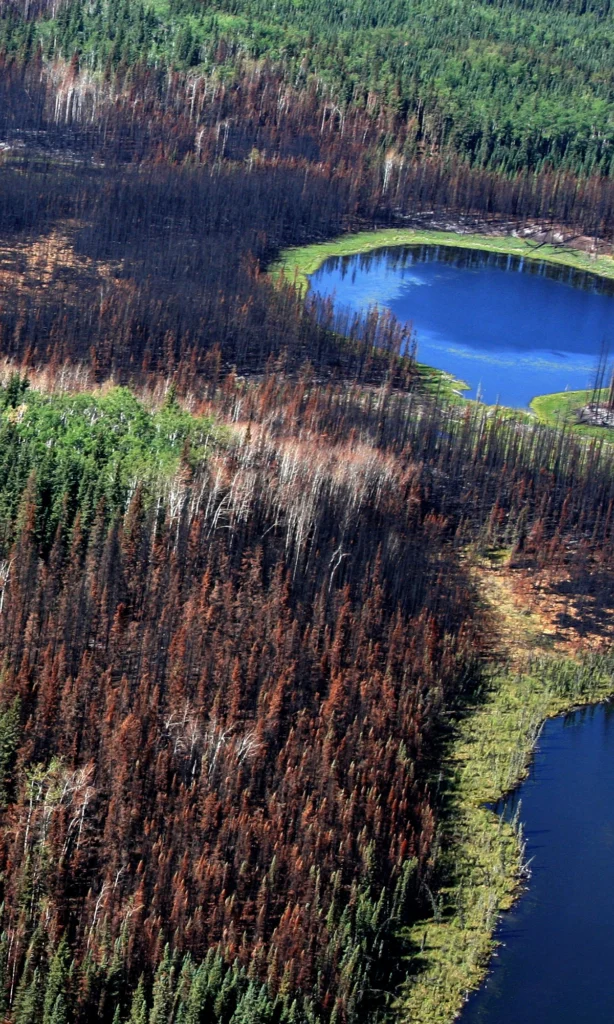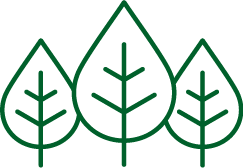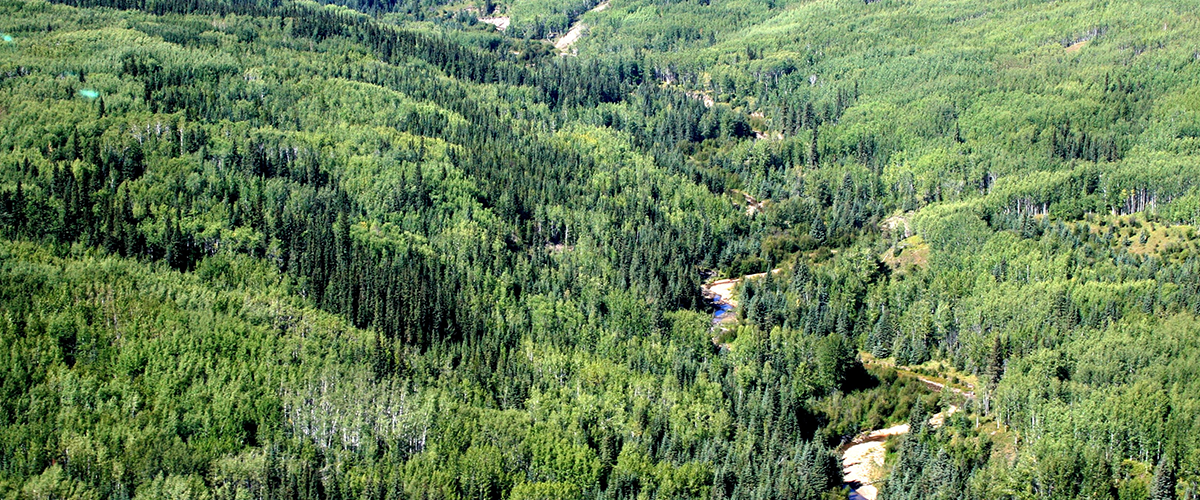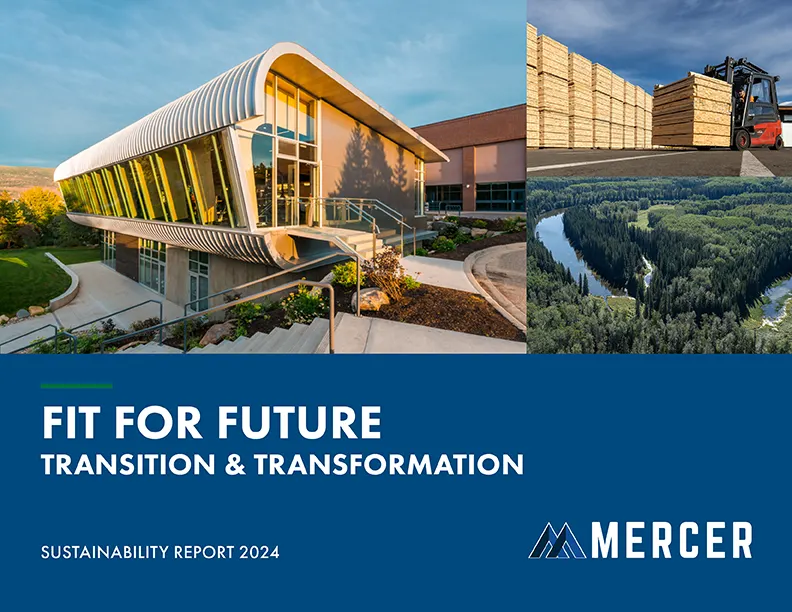Indigenous Relations
AN INCLUSIVE APPROACH TO FOREST MANAGEMENT
Indigenous communities possess valuable traditional knowledge about forest ecosystems and sustainable resource management practices that can inform and enhance modern forestry approaches.
Mercer Peace River in Alberta, Canada is committed to respectful engagement and sustainable practices. We align with international and provincial Indigenous consultation frameworks.
Our consultation process seeks to extend beyond Indigenous communities to involve the public through community conversations and public advisory committees. This helps our activities better align with the values and needs of each community.

MERCER’S INDIGENOUS ENGAGEMENT APPROACH
The Government of Alberta mandates that forest companies develop Values, Objectives, Indicators, and Targets (VOITs) as part of their forest management plans. VOITs serve as provincial performance standards, guiding forest management and integrating sustainability, timber production, and stakeholder interests.
While we align with Alberta’s VOIT framework, Mercer also recognizes the importance of building relationships based on principles consistent with Free, Prior, and Informed Consent (FPIC), particularly where long-term planning or project development is involved.
Our Peace River VOITs reflect the values identified by rights holders, such as clean water, and guide our forest management strategies. We work closely with communities in the planning process to ensure their values are incorporated into our land-based management. This involves various methods of formal community consultation, including meetings, traditional land use studies, spatial information systems, and field surveys, to identify and protect traditional and culturally significant sites.
MPR’s comprehensive forest management plan builds upon these VOITs. It outlines long-term strategies, including high-level management objectives, timber production assumptions, and sustainable harvest levels. The plan also details the management approach for Mercer’s forest management areas, specifying when, where, and how harvesting will occur.
We value collaboration and respect for the diverse needs and rights of all those who live, work, and play in Alberta’s boreal forest.

Managing Director, Mercer Peace River


Nurturing robust partnerships with Indigenous communities helps us improve overall planning and mitigation efforts, such as creating buffers around certain culturally significant sites like trappers’ cabins, berry-picking areas, and wildlife habitats. We work hard to ensure our forest management aligns with Indigenous values and priorities, while also enhancing environmental stewardship.

INDIGENOUS RELATIONS AT MERCER
Mercer believes that true sustainability is only possible when Indigenous voices are heard and respected. Mercer operates on treaty lands in Alberta, where Indigenous communities have constitutional rights to hunt, fish, trap, and gather. As a result, our forest management planning seeks to respect and accommodate these rights. The Government of Alberta oversees consultation but delegates procedural aspects to Mercer as a proponent. This means we must:
- Engage Indigenous communities about potential impacts of our operations.
- Seek to mitigate or accommodate concerns raised during the consultation process.
- Ensure government review and approval of consultation efforts to confirm adequacy.
However, we believe that consultation alone is not enough. Mercer prioritizes community engagement and economic reconciliation. Our long-term approach to forest management centers on Indigenous rights and seeks to align with Indigenous community priorities. Additionally, we work to create economic opportunities for Indigenous communities, fostering Indigenous participation in the forestry industry. We are committed to preserving cultural heritage and traditional practices, integrating Indigenous knowledge into land management. We endeavor to consult, respect and involve Indigenous communities in forest management decision-making, going beyond regulatory compliance to foster genuine, long-term relationships built on trust, transparency, and mutual benefit.
CREATING CULTURAL AWARENESS WITHIN MERCER
In 2024, employees from Mercer Peace River participated in several cultural awareness training sessions, including partnering with the Outland Youth Employment Program (OYEP) and engaging in blanket exercises—a kinesthetic, interactive learning tool that explores the history and contemporary relationship between Indigenous and non-Indigenous Peoples in Canada. The exercises use blankets to represent land and reenact historical events from an Indigenous perspective.
This commitment to immersive, experiential learning is crucial for building cultural awareness within Mercer. It fosters empathy, breaks down preconceived notions, and creates a foundation for respectful and meaningful collaboration with Indigenous communities. By understanding the historical context and lived experiences of Indigenous Peoples, Mercer can strengthen its relationships, promote inclusivity, and ensure its operations are conducted with deep respect for cultural heritage and reconciliation.
PARTNERING WITH INDIGENOUS COMMUNITIES
Our consultation with Indigenous communities is highly customized to meet the needs of each community. Understanding how each community is structured is critical to know the best approach to reach out and communicate with the members of that community. Some communities request that we work through Elders, or through a particular committee, or councils. While this can be challenging, it is also very rewarding as we are able to better protect the areas where these communities’ members interact with the land and resources. For example, we supplement our Spatial Viewer technology, a satellite-based forest mapping tool, with what we learn from Indigenous communities to get an “on-the-ground” perspective of where birds may be nesting or where a bear’s den may be located, allowing us to avoid those areas.
THE POWER OF PARTNERSHIPS
Following the 2018 acquisition of Mercer Peace River, previously Daishowa-Marubeni International (DMI), Mercer prioritized strengthening relationships with Indigenous communities. For example, our partnership with the Métis Nation of Alberta Region 6 demonstrates the positive impact of industry working together with Indigenous groups. Started in 1988 to address the pulp mill’s environmental and economic impacts, it led to the formation of the Indigenous Resource Development Group, which fostered communication between Indigenous communities and Daishowa, DMI’s former parent company. These discussions provided contract labor to the pulp mill and established Bison Contracting, a joint venture between the Métis Nation of Alberta Region 6 and a local contractor. For over 35 years, Bison Contracting has provided employment for more than 2,000 people, predominantly Indigenous. Mercer also utilizes the framework provided by the Canadian Council for Aboriginal Business (CCAB) and its Progressive Aboriginal Relations (PAR) program to build meaningful relationships with Indigenous communities in Canada. The PAR program, established in 2001, recognizes the significance of these relationships in the Canadian business sector.
The CCAB is a national organization that brings together Indigenous and non-Indigenous businesses, fostering mutual understanding and respect for Indigenous cultures and practices. Our membership in the CCAB reflects our commitment to these values. By aligning with the PAR certification criteria, we are actively working to strengthen our relationships with Indigenous groups, and our program participation is a testament to our dedication.
We are currently in the ‘Committed’ phase of the PAR process, indicating our active and continuous efforts to enhance our relationships with Indigenous communities. In line with the ‘Committed’ phase requirements, Mercer prioritizes respectful engagement to build trust, uphold ethical standards, and establish sustainable, long-term relationships with Indigenous Peoples in Canada.




